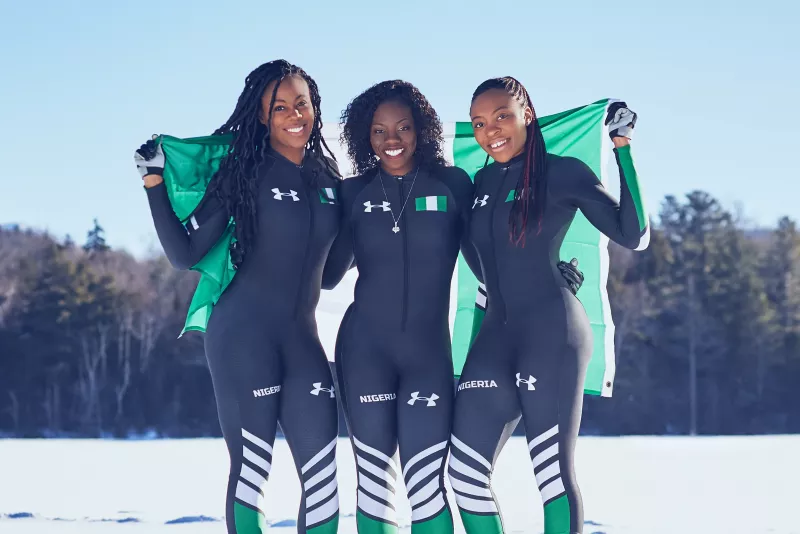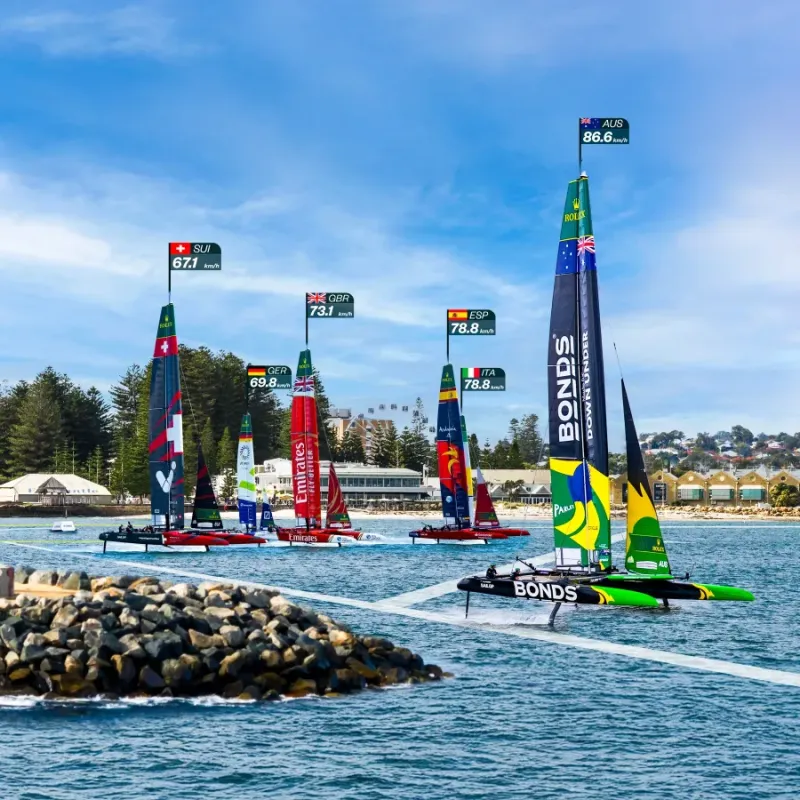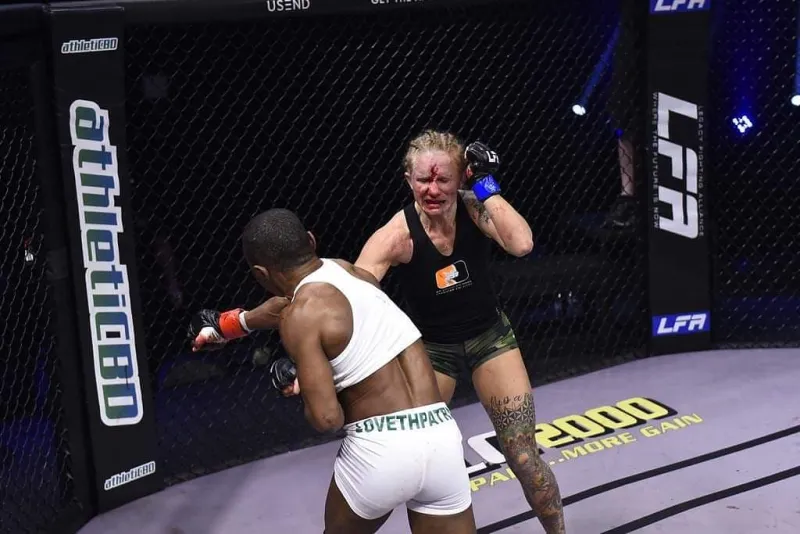If Simidele Adeagbo ever wavers in her fight to end gender-based discrimination in her sport, she takes inspiration from other women who have stood up for change.
The Nigerian monobob and skeleton athlete is on a quest to overturn qualification regulations for the Winter Olympics after missing out on a spot at this year's Games in Beijing.
"This action is bigger than me, it's bigger than bobsled. This is really about the future of female athletes," she told BBC Sport Africa.
Adeagbo was not talking about the issue of transgender athletes in sport, a major talking point right now, but about something far more simple - namely, the disparity in places available for male and female athletes.
For while there were 58 bobsled slots for men at this year's Winter Olympics, the women had nearly a third fewer - just 40.
"There are so many examples where it just took one woman to stand up and fight; the United States women's national soccer team, Allyson Felix pushing for change for mothers," she added.
"I want to make sure that no other woman is in this spot, knowing that she's talented and capable but just sitting on the sidelines - simply because there's a lack of gender equality."
Adeagbo has filed a complaint with the Court of Arbitration for Sport (Cas), alleging that the system set up by the International Olympic Committee (IOC) and the International Bobsleigh and Skeleton Federation (IBSF) meant she was prevented from competing in China.
Separately, Ghanaian skeleton racer Akwasi Frimpong has aired grievances about the scrapping of IBSF's continental quota system, which ultimately cost him a qualification spot for Beijing.
History-maker
In 2018, Adeagbo became the first Nigerian to compete at the Winter Olympics, when she made history as the first black female Olympian in the sport of skeleton.
However, she missed out on automatic qualification - by just one spot - for the inaugural monobob event at the Games in Beijing this year after the qualification criteria changed.
"If I had been a male competitor, I would have definitely been at the Beijing Games," the 40-year-old said.
"This is why it's really important to look to the future to make sure that talented, capable female athletes are not sidelined by this gender discrimination."
Monobob was introduced to the Olympic programme to increase the number of women who can compete in the bobsleigh events.
But look a little closer at the numbers, and they tell a very different story.
Men are allocated 28 sled spots in the four-man bobsleigh event and 30 spots in the two-man, while women are allotted 20 spots in the monobob and 20 in the two-person bobsleigh.
"When you dive deep into the numbers, you can see that they're just not equal - so any female athlete that's trying to reach the games does not have an equal opportunity of doing so," Adeagbo explained.
In January, Adeagbo - who is in the best form of her career - became the first African to win an international bobsled race, when she took the monobob World Series title in Germany.
"I've come off the race of my life," she said.
"I know that my future is bright. I'm super-excited to just continue to explore my potential in the sport of bobsled. But I want to do that under a system that's equal."
Even if Adeagbo had made the starting line in Beijing, she insists she would still be taking this action against the IOC and ISBF.
"As an elite athlete, you do not want to be watching the Olympics from your couch," she said.
"That is the worst thing that could possibly happen, especially given the amount of energy and investment that you pour in as an athlete physically, mentally, financially."
That time on her couch gave Adeagbo time to reflect.
"I believe I would be taking this action regardless, but actually not making it really helped me to see the gap that was there.
"I would have loved to be in Beijing, but it gave me a moment to pause and really reflect and understand the systems that were in place, and really gave me the fuel to take that disappointment and channel it for change."
There is no questioning Adeagbo's determination and passion, both for her sport and for her fight to change it.
It took her a decade to realise her dream of competing at an Olympic Games, having first attempted to qualify in 2008 as a triple jumper.
She switched from the athletics track to the ice track in 2017, qualifying for Pyeongchang 2018 when she made history as Africa's first competitor in skeleton.
The determination that is so apparent in her sporting career is what is driving her in her legal fight.
"I've never backed down from challenges, and this is just another challenge that I'm facing as an athlete," she said. "Just like when I step up to the starting line, I have full confidence that I'm going to succeed.
"I'm stepping up to my starting line in this Cas filing, feeling confident and empowered, knowing that my chance to succeed is just as good as anybody's."




